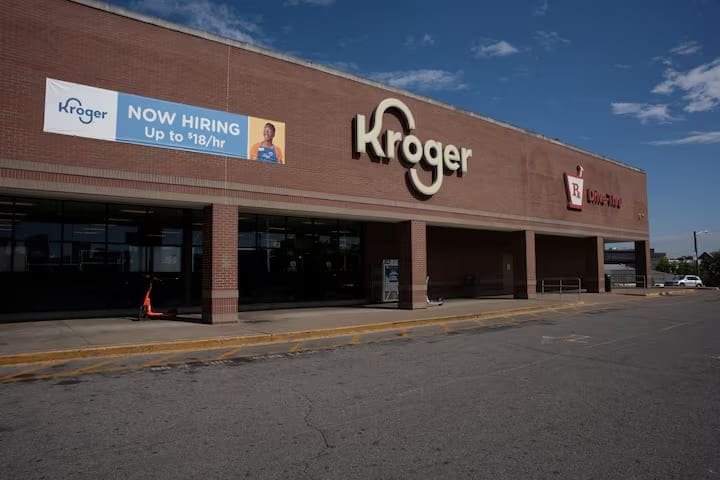Introduction
The Kroger Albertsons merger lawsuit has gained significant attention following the collapse of their proposed $25 billion merger. After regulatory hurdles led to the deal’s termination, lawsuits were filed by both companies. The implications of this development on the retail industry, market competition, and consumer prices are now being widely discussed. This blog explores the details of the failed merger, the legal battle that has ensued, and its broader impact on the supermarket sector.
Overview of the Kroger-Albertsons Merger Attempt
A merger between Kroger and Albertsons had been proposed in 2022, with the goal of creating one of the largest supermarket chains in the United States. By combining Kroger’s 2,750 stores with Albertsons’ 2,300 stores, it was argued that a stronger competitor to retail giants such as Walmart and Amazon could be formed. Lower prices, improved services, and increased investment in employee benefits had been highlighted as the major advantages of the merger. However, regulatory concerns soon emerged, raising questions about the deal’s feasibility.
Regulatory Challenges and Legal Interference in the Kroger-Albertsons Merger
Multiple regulatory bodies, including the Federal Trade Commission (FTC) and eight U.S. states, opposed the merger, citing potential anti-competitive effects. Concerns were raised that reduced competition could lead to increased prices for consumers and diminished wage growth for employees. To address these concerns, a plan had been proposed by Kroger and Albertsons to divest 579 stores to C&S Wholesale Grocers. However, this solution was deemed insufficient by regulators, who questioned C&S’s ability to operate the divested stores effectively. As a result, a preliminary injunction was issued by the U.S. District Court, preventing the completion of the merger. The decision was based on the premise that significant direct competition between the two supermarket chains would be eliminated.
Albertsons’ Lawsuit Against Kroger Over the Failed Merger
Following the regulatory rejection, the merger agreement was formally terminated by Albertsons. A lawsuit was subsequently filed against Kroger in the Delaware Court of Chancery, alleging breach of contract. It was claimed that efforts necessary to gain regulatory approval had not been undertaken by Kroger. Allegations were made that regulators’ concerns had been ignored, stronger divestiture buyers had been rejected, and cooperation throughout the approval process had been withheld. As a result, Albertsons sought damages, including a $600 million termination fee and compensation for lost shareholder value.
Kroger’s Countersuit Against Albertsons After the Merger Collapse
In response, a countersuit was filed by Kroger, denying all allegations and accusing Albertsons of hindering the merger process. It was argued that intentional material breaches had been committed by Albertsons, interfering with regulatory negotiations. By filing the lawsuit, Albertsons was attempting to shift the blame for the deal’s failure, according to Kroger. Compensation for the financial losses incurred during the regulatory approval process was sought by Kroger through its countersuit.
Financial Impact of the Failed Kroger-Albertsons Merger
A decline in stock value was experienced by Albertsons following the termination of the merger. Investor confidence in the company’s future was impacted, and analysts provided mixed ratings on Albertsons’ stock. While some analysts maintained a “buy” rating, others advised caution, reflecting the uncertainty surrounding the company’s long-term prospects.
For Kroger, the failed merger and the ensuing lawsuits resulted in reputational and financial challenges. Reports surfaced that customers had expressed dissatisfaction after it was admitted by Kroger that essential goods, such as eggs and milk, had been priced above inflation rates. The backlash further complicated the company’s position amid the legal disputes.
Industry-Wide Implications of the Kroger-Albertsons Dispute
The collapse of the Kroger-Albertsons merger highlighted the increasing regulatory scrutiny faced by large-scale supermarket consolidations. The case set a precedent for future mergers within the retail industry, emphasizing the importance of addressing antitrust concerns effectively. A clear message was sent to corporations that competitive market dynamics must be preserved, ensuring that consumers benefit from fair pricing and adequate product availability.
Conclusion
The ongoing legal battle between Kroger and Albertsons has reinforced the complexities associated with large-scale mergers in the supermarket sector. As both companies continue to navigate the consequences of the failed deal, significant financial and operational implications are expected. The evolving regulatory environment will likely influence future mergers, making compliance with antitrust laws an essential aspect of corporate expansion strategies. The retail industry will continue to observe the legal developments closely, as the case remains a pivotal moment in supermarket consolidation history.
